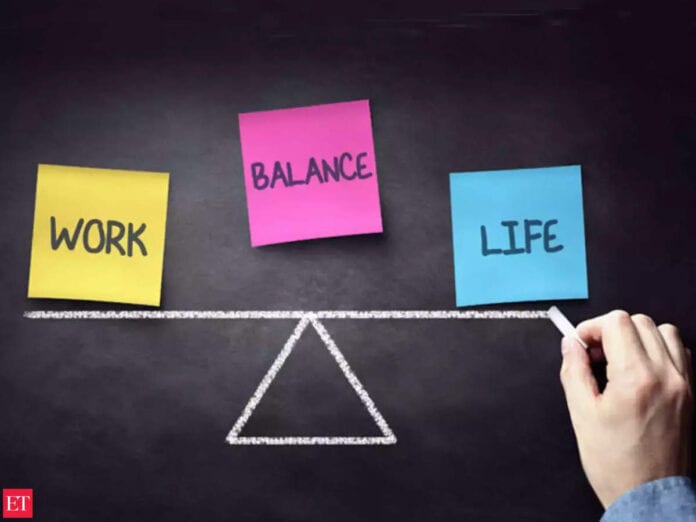How to Strike A Healthy Real Life/Online Life Balance Post Pandemic
The pandemic has created massive changes in online usage that would have otherwise taken many years to happen, and online spaces have consequently grown. For many there is a simplistic view about online bad versus real world good, however, what this year has taught us very clearly is that life would have been much harder without our online and telephone-based lives. We have seen the advantages and value added of having the digital world at our fingertips with video calls, a variety of social contacts, the capacity to be economically productive from home working and staying in touch with each other whilst socially distancing.
Psychotherapist Noel McDermott comments:
“Online life has its benefits, but it also has its problems. Much more is talked about in terms of its problems, and we are seeing a rush to digitally detox post pandemic and look at the bad habits we have developed and curb them. However, the pandemic has reinforced what we value and what is best about real life and online living. Those that have problems with online living are in the minority.”
The Health Benefits of Hugging
It’s not just digital detox we need, but a good hug. One thing a zoom call can’t do is give you a hug and as physical and social animals we need this type of physical contact with each other. Soon in the UK we shall see the ban on hugging lifted to some extent. As humans we need real life emotional contact, we can see the immediate impact of this on distressed babies for example, by picking up a crying child, looking them in the eyes and using a soothing voice will normally provide comfort. This happens through the release of reward hormones into the brain and body and this regular physical and social contact is essential for our health and wellbeing.
Going back into real life will produce anxieties, we need to challenge this narrative inside our minds and once again embrace human interaction.
Feel Good Actions:
- Hold hands with someone you love in public – non-sexual skin to skin contact releases hormones such as oxytocin that calm us and make us feel safe, you will feel safer out and about
- Hug someone you love or care about – hugs activate feelings of safety and calm in most people
- Arrange a gentle massage to activate your sense of touch and again promote the release of reward hormones
- Initiate eye contact with friends and loved ones in person, we have lots of receptors for oxytocin in our eyes (designed by mother nature to be able gaze at feeding babies to produce neurological growth and emotional bonding)
Finding the balance in our digital lives
Our choices about the mix of online and in the real world at this point are crucial and we need to find the right balance that works for us. Our lives are online now, and we won’t be going back on that. We have a great opportunity with the easing of restrictions on socialising to make many positive changes to our lives. The development of telehealth (online and telephone based) approaches to health, including psychological health has been hastened by the pandemic and won’t be rolled back. What we can focus on as individuals is how these types of development provide the freedom to make choices about how we organise our time and how we use our real-life contact with each other.
Life After Covid: Lessons Learned
During the pandemic we have become much more local and much more connected than before, and this can be held onto going forward. As we move forward, this is the time to do your own audit of the benefits you have accrued during his time:
- Who have you reached out to during this time that you will continue to stay connected with?
- Who have you helped during the pandemic that you may wish to hug when we are allowed?
- What time and convenience benefits have you gotten from moving online and want to keep?
- What are the pleasurable and life affirming IRL activities you have missed and wish to do more of going forwards? (being out in the countryside, being at the seaside, going for walks with friends and family for example)
- What is being marketed to you (being able to get drunk in pub, being able to fly around the world) versus what you actually miss?
Psychotherapist Noel McDermott comments: “The gradual opening up of society allows to be reflective of what we are gaining and what we are losing in this transition period. Use the time wisely to see where the grass is already green around your feet.”
Noel McDermott is a Psychotherapist with over 25 years’ experience in health, social care, and education. He is the founder and CEO of three organisations, Psychotherapy and Consultancy Ltd, Sober Help Ltd and Mental HealthWorks Ltd. Noel’s company offer at-home mental health care and will source, identify and co-ordinate personalised care teams for the individual. They have recently launched a range of online therapy resources in order to help clients access help without leaving home – www.noelmcdermott.net
For further information or for press enquiries please contact Natalie Clarke on 07796675950 or email na*****@**********on.com

| [donate]
| Help keep news FREE for our readersSupporting your local community newspaper/online news outlet is crucial now more than ever. If you believe in independent journalism,then consider making a valuable contribution by making a one-time or monthly donation. We operate in rural areas where providing unbiased news can be challenging. |



















